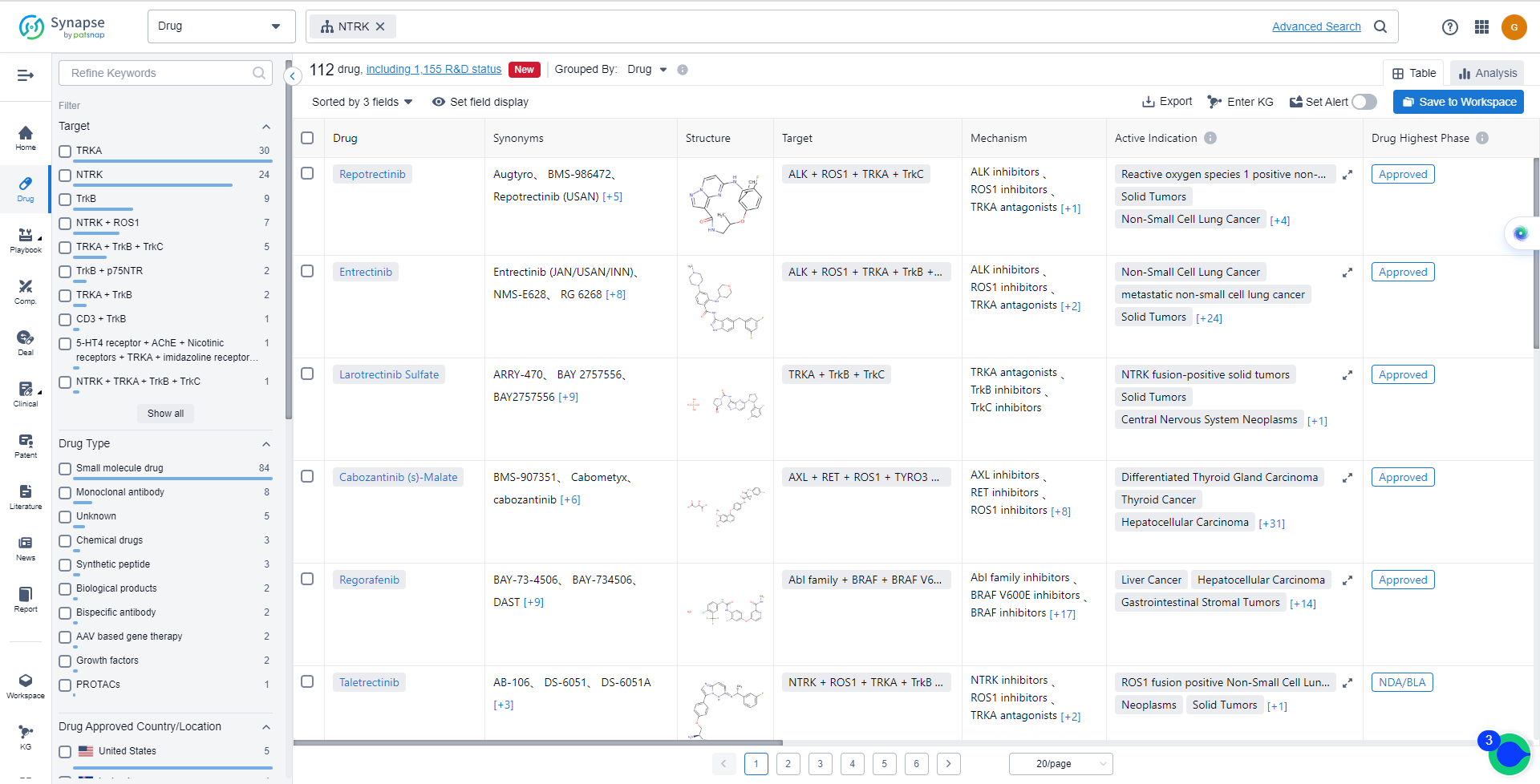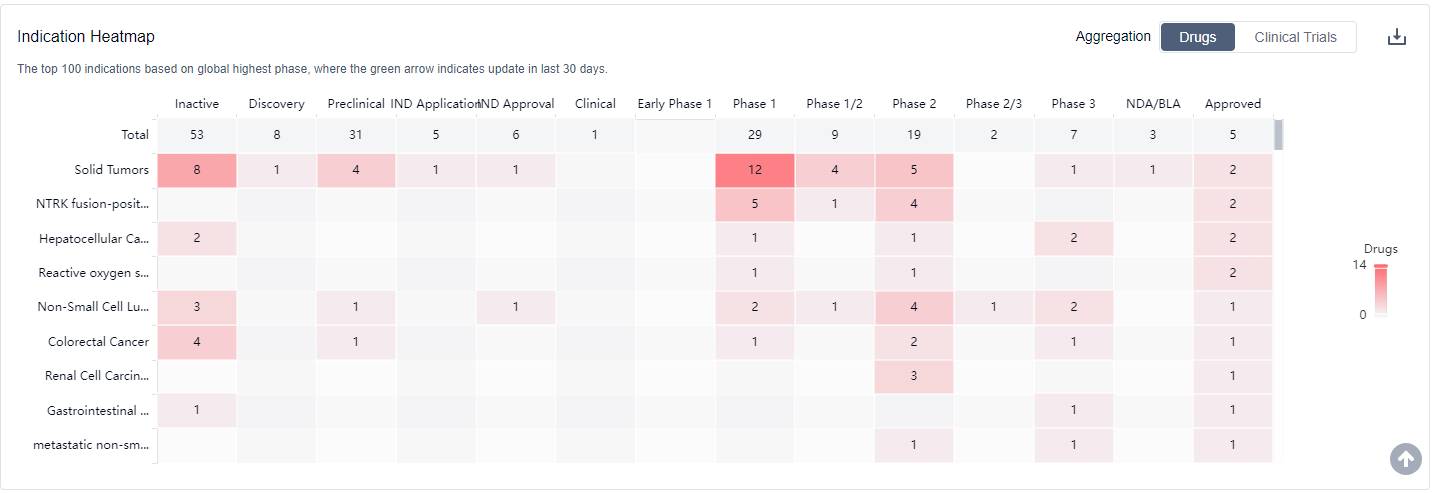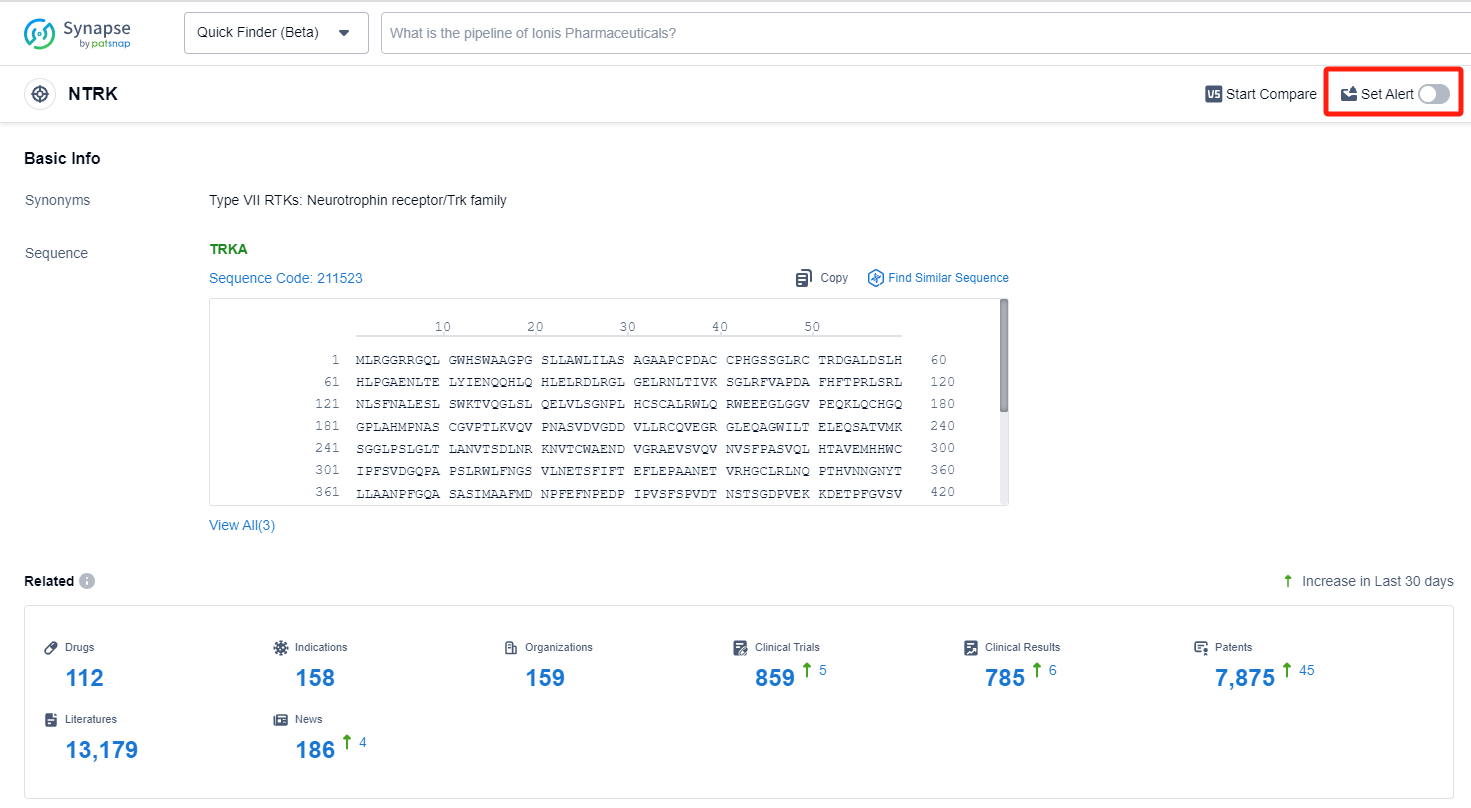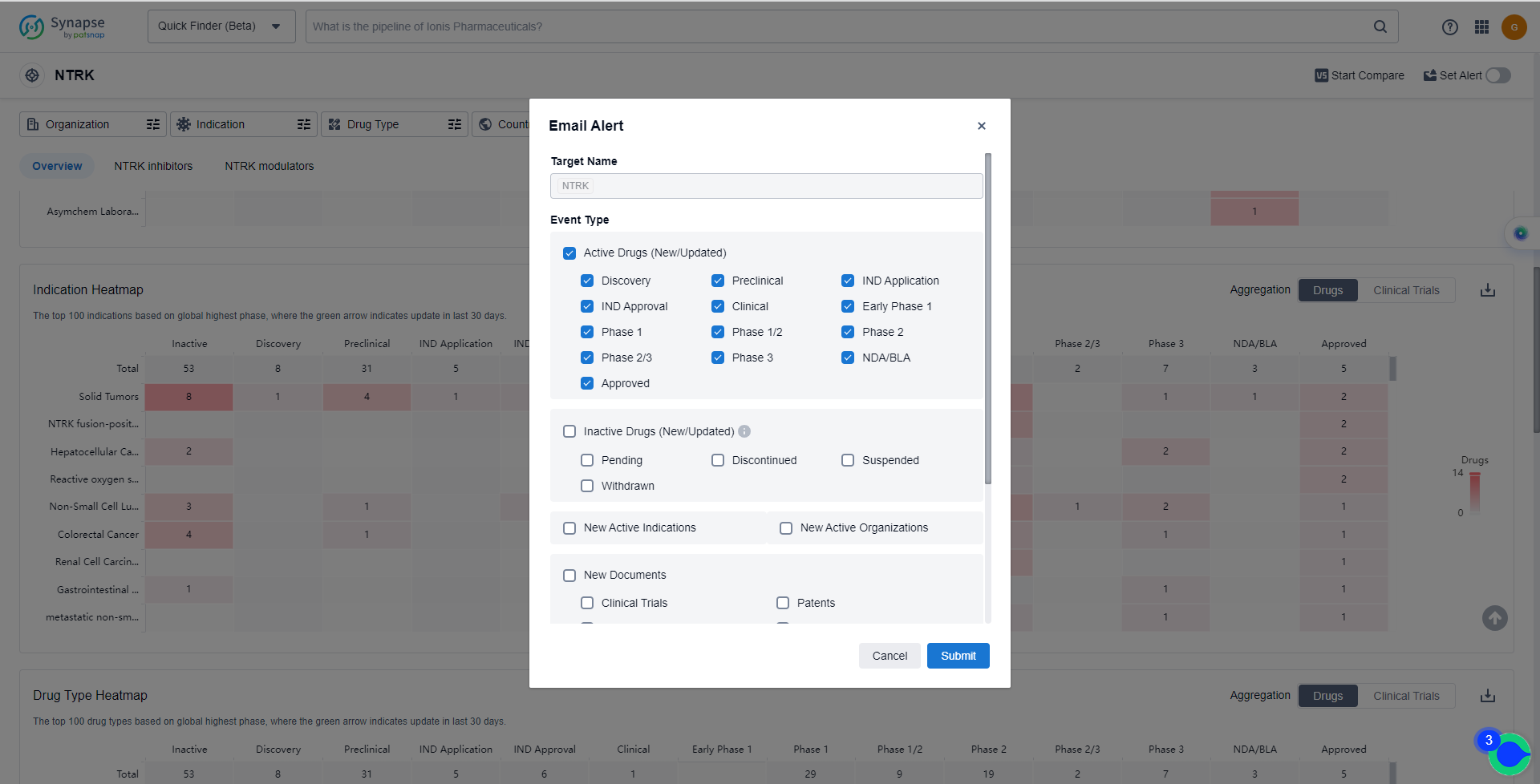Deciphering NTRK Inhibitors and Keeping Up with Their Recent Developments
NTRK, also known as neurotrophic receptor tyrosine kinase, plays a crucial role in the human body. It is a family of proteins that are involved in the growth, development, and survival of nerve cells. NTRK receptors are activated by neurotrophins, which are a group of proteins that support the growth and maintenance of neurons. When NTRK receptors are activated, they initiate signaling pathways that regulate various cellular processes, including cell growth, differentiation, and survival. Dysregulation of NTRK signaling has been implicated in various diseases, including cancer and neurological disorders. Targeting NTRK receptors has emerged as a promising therapeutic approach in the pharmaceutical industry.
All currently available NTRK inhibitors are Tropomyosin receptor kinase (Trk) inhibitors, some of which also have anti-ROS1 and ALK activity. NTRK inhibitors bind to Trk, thereby preventing ligand-Trk interaction and Trk activation, thus blocking the oncogenic activity of cancer cells overexpressing NTRK fusion proteins, thereby inducing cell apoptosis and inhibiting cell growth in tumor cells. Similar to other TKIs, the durability of first-generation NTRK inhibitors is often limited by mutations affecting NTRK inhibitor binding interactions, including primary and acquired resistance. Therefore, second-generation NTRK inhibitors have been developed to overcome these resistance mutations. Compared with first-generation NTRK inhibitors, second-generation NTRK inhibitors have a smaller molecular weight and a compact macrocyclic structure, which avoids the steric hindrance that prevents first-generation NTRK inhibitors from binding to the ATP binding site in solvent front, gatekeeper, and xDFG mutations.
The analysis of the target NTRK reveals a competitive landscape with multiple companies actively developing drugs targeting NTRK. Bayer AG, Roche Holding AG, Bristol Myers Squibb Co., Exelixis, Inc., and Ipsen SA are among the companies growing fastest under this target. The indications for NTRK-targeted therapies cover a wide range of cancers, indicating the potential of these therapies in treating various types of tumors. Small molecule drugs, Synthetic peptides, and Monoclonal antibodies are progressing rapidly, while biosimilars pose intense competition around innovative drugs. The countries/locations developing fastest under the target NTRK include the United States, European Union, Japan, and China, with China showing significant progress. Overall, the target NTRK presents a promising opportunity for the pharmaceutical industry, with potential for further growth and development in the future.
How do they work?
NTRK inhibitors are a type of medication that target and inhibit the activity of neurotrophic receptor tyrosine kinases (NTRKs). NTRKs are a family of proteins that play a crucial role in the growth, development, and survival of nerve cells. They are involved in various cellular processes, including cell proliferation, differentiation, and survival.
When NTRKs become abnormally activated or overexpressed, it can lead to uncontrolled cell growth and contribute to the development and progression of certain types of cancers. NTRK inhibitors work by specifically blocking the activity of these receptors, thereby inhibiting the signaling pathways that promote tumor growth and survival.
These inhibitors have shown promising results in the treatment of cancers that harbor NTRK gene fusions, which are genetic alterations that result in the fusion of NTRK genes with other genes. This fusion leads to the constitutive activation of NTRK receptors and the promotion of cancer cell growth. By targeting NTRK receptors, inhibitors can help suppress the growth of cancer cells and potentially improve patient outcomes.
NTRK inhibitors are considered a targeted therapy and are typically used in patients with advanced or metastatic cancers that have NTRK gene fusions. They may be prescribed as a standalone treatment or in combination with other anticancer therapies, depending on the specific cancer type and individual patient characteristics.
List of NTRK Inhibitors
The currently marketed NTRK inhibitors include:
For more information, please click on the image below.
What are NTRK inhibitors used for?
NTRK inhibitors are primarily used in certain rare tumors, such as infantile fibrosarcoma and secretory breast cancer. For more information, please click on the image below to log in and search.
How to obtain the latest development progress of NTRK inhibitors?
In the Synapse database, you can keep abreast of the latest research and development advances of NTRK inhibitors anywhere and anytime, daily or weekly, through the "Set Alert" function. Click on the image below to embark on a brand new journey of drug discovery!








